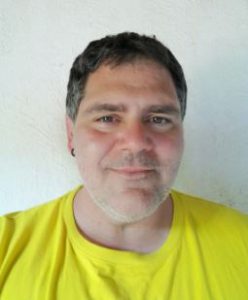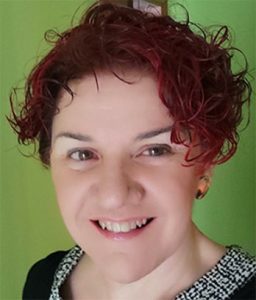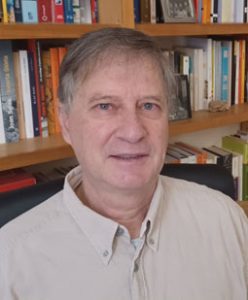Preconference short course
The upcoming 2024 Chemometrics in Analytical Chemistry conference is excited to present an exclusive pre-conference course.
The course delves into cutting-edge topics crucial to our fields, tailored for junior and senior researchers seeking familiarity with these forefront advancements. Whether aiming to deepen your expertise or explore new dimensions in chemometrics in analytical chemistry, this course promises invaluable insights.
The course will run on Monday, September 9, 2024, in two modules of three hours each and is also available to conference and non-conference attendees!
This course will be offered in a hybrid format, making it accessible to everyone. Whether you’re attending the conference or not, you can still benefit from our expert presenters’ valuable insights and knowledge.
Registration fee: US$ 50.
Registration for non-conference attendees ONLY:
1. Pay the registration fee through the MERCURIO system. For detailed payment instructions, please click here. Upon completing the transaction, save the proof of payment as an image or PDF file.
→ Payments through MERCURIO system – Course only
2. Send an email to 19cac2024@gmail.com with the following information:
Subject: pre-conference course registration
Body: should include
Name:
Affiliation:
Format: In-Person/Online
Invoice details (if required):
Attachment: proof of payment
COURSE INFORMATION
Module 1: MCR-ALS
Romà Tauler and Anna de Juan
Monday 9, September 2024 – 8:00 – 10:50 hs
Rectorate, Boulevard Pellegrini 2750
Prerequisites: Basic knowledge of chemometrics (multivariate analysis of chemical data)
Objectives: This course is dedicated to presenting the theoretical aspects and main
applications of the MCR-ALS method and some of the main practical
applications. Various selected examples in different applied fields will accompany all these theoretical aspects.
Course Program.
1) The MCR-ALS method. Bilinear model. How to determine the number of
components, initial estimates and presentation of the main constraints.
Introduction to advanced constraints (correlation for quantitative analysis, hard-
soft modelling). MCR-ALS extensions for multiset and multiway data analysis.
MCR uncertainty: the concept of rotation ambiguity and noise propagation.
2) MCR-ALS applications to the study of a) chemical reactions and processes,
b) multidimensional chromatographic and spectral data, c) hyperspectral
imaging data, d) environmental data; and e) metabolomics/lipidomics data.
———–
Module 2: Targeted and Untargeted Anomaly Detection Approaches in Hyperspectral Imaging
José Manuel Amigo
Monday 9, September 2024 – 11:00 – 13:50
Rectorate, Boulevard Pellegrini 2750
Anomaly Detection is an area of data analysis that aims to find anomalies in generic datasets. In the framework of Hyperspectral analysis, Anomaly Detection Methods are powerful tools to find pixels or groups of pixels that are somehow different from the bulk image and are in such low presence that their detection is sometimes compared to finding a needle in a haystack. Within the Anomaly Detection methods, Targeted and Untargeted approaches can be found. This workshop will review some of the most popular ones:
As a targeted approach, we will study classical least squares (CLS) and its most common variants, like extended least squares (ELS) and generalized least squares (GLS). The main mathematical concepts and their implication in real cases applied in the Hyperspectral Imaging framework will be visited during the workshop. The connections, similarities, and dissimilarities with more popular methods like Multivariate Curve Resolution (MCR), Independent Component Analysis (ICA), and Principal Component Analysis (PCA) will also be exposed. We will study a more sophisticated approach belonging to the untargeted approaches, like Encoder-Decoder architectures.
The workshop will be scheduled as follows:
– Theoretical lessons
– Practical lessons with real examples
All codes will be provided in the form of Matlab codes. Bringing the latest version of Matlab is advisable, even though any version is welcome.

José Manuel Amigo
Research Professor. IKERBASQUE. Basque Foundation for Sciences. Bilbao. Spain
Distinguished Professor at the Department of Analytical Chemistry. University of Basque Country. Spain
He was born in 1978. He obtained his PhD (Cum Laude) in Chemistry from the Autonomous University of Barcelona, Spain. He was employed as a post-doctoral student (2007 – 2009) and an Associate Professor (2010 – 2019) at the Department of Food Science of the University of Copenhagen, Denmark. In 2017 he was, at the same time, a guest Professor at the Federal University of Pernambuco, Brazil. He is now a Distinguished Professor at the Department of Analytical Chemistry of the University of the Basque Country, Spain, and a Research Professor of IKERBASQUE, The Basque Foundation for Science.
His current research interests include hyperspectral and digital image analysis and the application of Chemometrics (i.e., Machine and Deep Learning). He has authored over 180 publications (150+ peer-reviewed papers, books, book chapters, proceedings, etc.) and has given over 60 conferences and courses at international meetings. Jose has supervised or is currently supervising several MSc, PhD, and Post Docs, and he is an editorial board member of four scientific journals within chemometrics, pharmaceutical sciences, and analytical chemistry.
Moreover, he received the “2014 Chemometrics and Intelligent Laboratory Systems Award” for his achievements in the field of Chemometrics and the “2019 Tomas Hirschfeld Award” for his accomplishments in Near Infrared. He is editor of the book “Hyperspectral Imaging. Volume 32. Elsevier. ISBN: 9780444639776. In Data Handling in Science and Technology.
————————————————————————————–

Anna de Juan
Anna de Juan is an associate professor at the Department of Analytical Chemistry at the University of Barcelona since 2003, where she leads the Chemometrics group. Her expertise is in the development of chemometric methods, in particular Multivariate Curve Resolution methodologies, for data fusion and analysis of complex analytical measurements, such as hyperspectral images and monitoring and control of bioanalytical and industrial processes. She is member of the Editorial Advisory Board of Chemometrics and Intelligent Laboratory systems, Analytica Chimica Acta and acted as Analytical Chemistry editor of Scientific Reports. Since 2023, she is Associate Editor-in-chief of Journal of Chemometrics. In 2004 she received the 4th Chemometrics Elsevier Award and in 2023 the TIC2023 award for Comprehensive Collaboration in Chemometrics. She has served as invited professor in research stages and graduate schools in Dalhousie Univ (Canada), Univ. Lille (France), Univ. Copenhagen (Denmark), Università degli study di Modena e Reggio Emilia (Italy) among others. She is currently member of the board of the Catalan Chemical Society and delegate of the Division of Analytical Chemistry (DAC) of EuChemS. She has organized and fostered conferences in the areas of Chemometrics, Process Analytics and Chemistry.

Romà Tauler
Romà Tauler obtained his PhD in Analytical Chemistry at the University of Barcelona in 1984. He has been Associate Professor of the University of Barcelona and he is at present (since 2003) CSIC Research Professor at the Institute of Environmental Assessment and Water Studies (IDAEA-CSIC, Barcelona). He has been the President of the Catalan Chemistry Society, 2008-2013 and the Chief Editor of Journal of Chemometrics and Intelligent Laboratory Systems, CHEMOLAB until beginning of 2024. Chief Coeditor of the MAJOR REFERENCE WORK: COMPREHENSIVE CHEMOMETRICS, Chemical and Biochemical Data Analysis (Elsevier). Coeditor of the Data Analysis for Omic Sciences: Methods and Applications, Comprehensive Analytical Chemistry, Wilson & Wilson, Elsevier, Volume 82, 2018. He has received the Award for Achievements in Chemometrics, Eastern Analytical Symposium, the 2009 Kowalski Prize from the journal J.of Chemometrics, Wiley, 2009. He has been the recipient of the Eu-ERC Advanced Grant award Nr. 320337, 2013-2018, the Radboud Excellence Initiative Professorship Visiting Award, Radboud University Nijmegen, The Netherlands, 2021-2022, Honorary Doctor of the University of Silesia (Katowice, Poland), March 2022 and the Chemometrics Lifetime Achievements Award 2022 (Chemometrics in Analytical Chemistry, CAC 2022, Rome) September 2022. According to WoS Romà Tauler (July 2024) has published 483 research publications ISI referenced with 22530 cites (19162 without self-citation) and has an h-índex 68, 46.4 per item. According to Google Scholar RT has 31983 citations (12305 since 2019) and h-index 86 (h-index 49 since 2019). He has supervised 27 PhD Thesis in Chemometrics and Analytical chemistry.
.
.